10 Hidden Sources of Sugar That Could Be Making You Gain Weight

Even if you’re trying to lose weight, it’s OK to have the occasional dessert or sweet treat. However, research suggests that consuming too much added sugar on a regular basis can sometimes pack on the pounds, both because those foods are often higher in calories and because sugar can trigger increased appetite and cravings.
“Hunger is increased by insulin response, and sugar has an extremely high insulin response,” explains Kimberly Gomer, MS, RD, LD/N, a registered dietitian working with Consumer Health Digest. “It is particularly a problem with those that are insulin resistant (a group of folks who have struggles with appetite and weight loss, pre-diabetes, and diabetes).”
“When insulin is spiked, it is the hunger hormone, so introducing sugar actually makes that person feel hungrier as they eat the high sugar foods and be unable to stop eating when full,” she adds.
In fact, sugar is hidden in nearly every processed food, says Daryl Gioffre, DC, a functional nutritionist, gut health expert, chiropractor, and the author of Get Off Your Sugar.
“It creates its own self-perpetuating cycle of cravings. Sugar is not just ingrained in our brains—it’s baked into our culture,” he says. “We turn to sugar when we’re celebrating and when we’re sad; when we need a pick-me-up in the afternoon and when we’re relaxing in the evening with a pint of Ben & Jerry’s.”
The Centers for Disease Control and Prevention (CDC) recommends getting no more than 10 percent of your total daily calories from added sugar. The American Heart Association (AHA) recommends even less—no more than six teaspoons per day for women and no more than nine teaspoons for men.
However, it’s not enough to simply skip the teaspoons that you personally add. “Added sugars are hidden in foods you wouldn’t expect. There are also over 60 words the food industry uses to indicate sugar, so always read the labels,” Gioffre tells Best Life.
Avery Zenker, RD, MAN, a registered dietitian working with Everflex Fitness, points out that many of these foods are explicitly marketed as nutritious, making people less likely to look critically at their added sugar content.
“There’s evidence that when we eat things that we believe are healthy, we’re more likely to assume we’ve eaten fewer calories, leading us to eat more later. Many high-sugar foods are also hyper-palatable, which leads us to eat more of them. Sugar itself is not very satiating, meaning it doesn’t help us feel satisfied and full for long after eating,” says Zenker.
Wondering where those added sugars are hiding? These are the 10 sneaky sources of sugar that could be making you gain weight, according to dietitians and nutritionists.
RELATED: If You Want to Lose Weight, “Avoid These Foods Like the Plague,” Fitness Expert Says.
1
Condiments
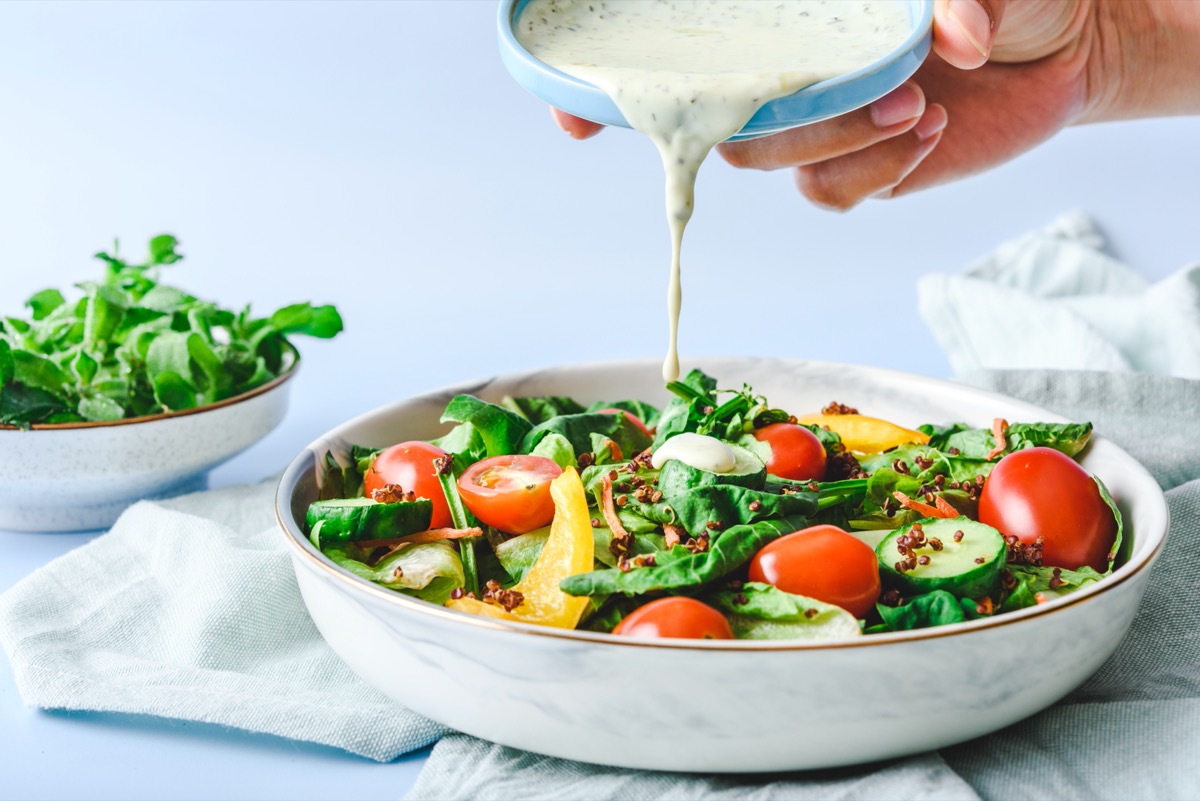
Condiments such as ketchup, salad dressing, marinades, and sauces often contain lots of added sugars.
“There are about two teaspoons of sugar in one serving of ketchup and three and a half teaspoons in a serving of barbecue sauce. That’s more than half of your daily recommended amount,” Gioffre points out, referencing the AHA’s guidelines.
The problem often arises when people—often understandably—use more than the recommended amount. For instance, a two-tablespoon serving of salad dressing is unlikely to dress a large salad, leading many people to disregard the label’s recommendations.
“Portion sizes of these foods can really add up,” Zenker says. “That so-called ‘healthy salad’ can easily turn into 100s of extra calories.”
2
Muffins
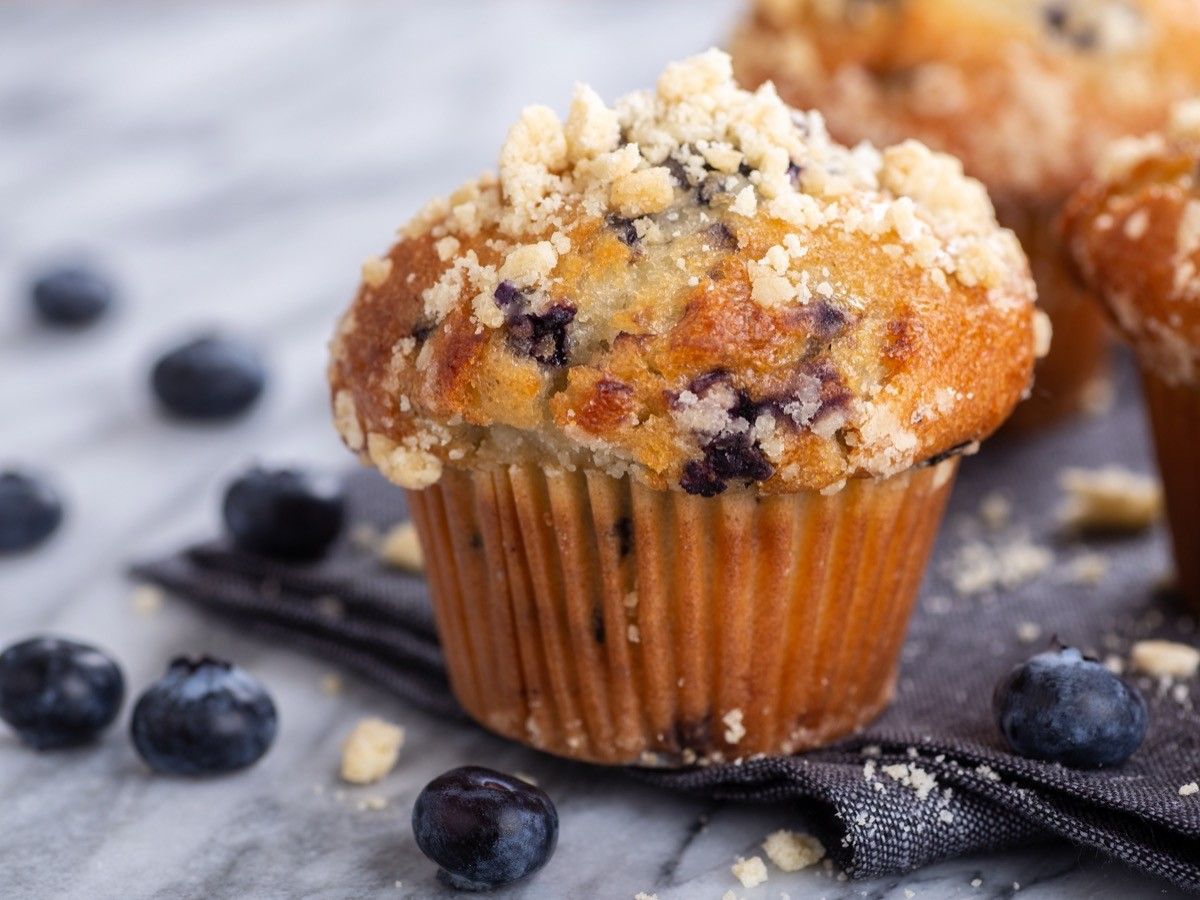
Muffins make a delicious treat, but experts say you should think twice before making them a go-to breakfast food, thanks to their high sugar content.
“Sugar is the first ingredient in some muffins. A quick look at popular fast-food chain muffins revealed they contain upwards of 42 grams of sugar. That’s more than a can of Coke,” Zenker notes.
RELATED: The 10 Most Common Reasons People Can’t Lose Weight, Nutritionists Say.
3
Sweetened beverages
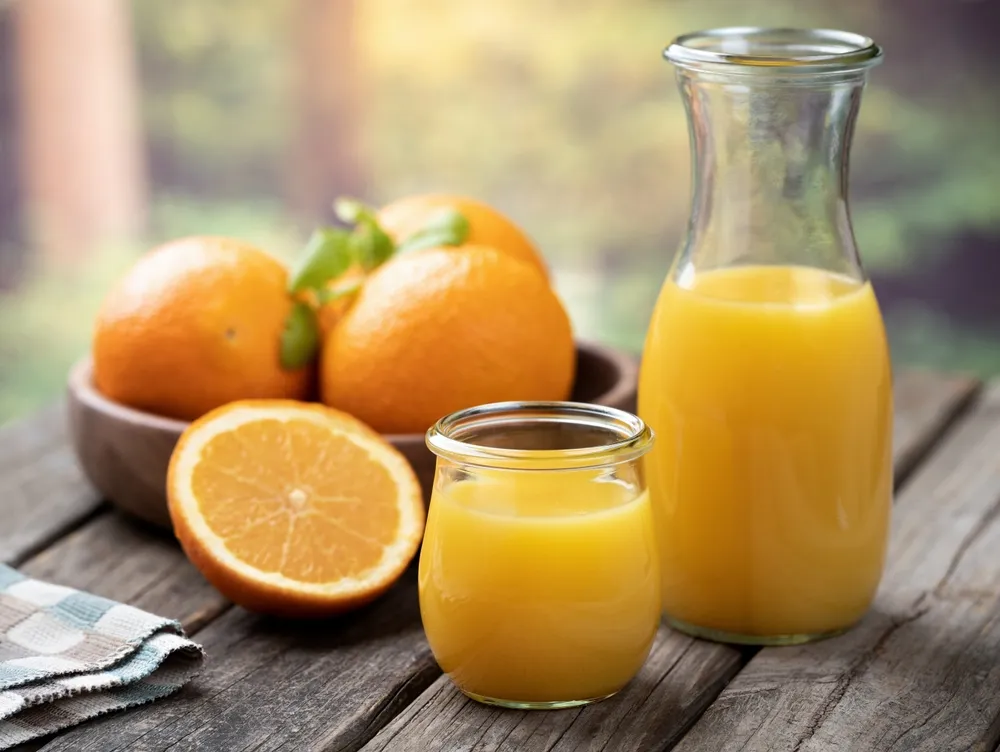
Certain beverages can also harbor hidden sugar and calories. In particular, juice, sports drinks, kombucha, sweetened coffee, and cocktails are all frequent offenders.
“Special coffee drinks and other novelty drinks can contain high amounts of sugar. Some examples include lattes, iced tea, boba, coconut water, vitamin water, and more,” Zenker adds.
“The extra sugar in flavored drinks can lead to weight gain because they don’t make us feel full when we have them. They taste good and are easy to drink quickly, so it is easy to have calories add up,” says Lauren Kort, MS, RD, a dietitian working with Bariendo. “Also, since we are drinking them versus eating them, it can be easy to forget that we’ve had them when we’re assessing our intake and calories for the day.”
The dietitian recommends checking the label for a lower-sugar option or diluting these beverages with sparkling water when you do choose to have them.
4
Smoothies
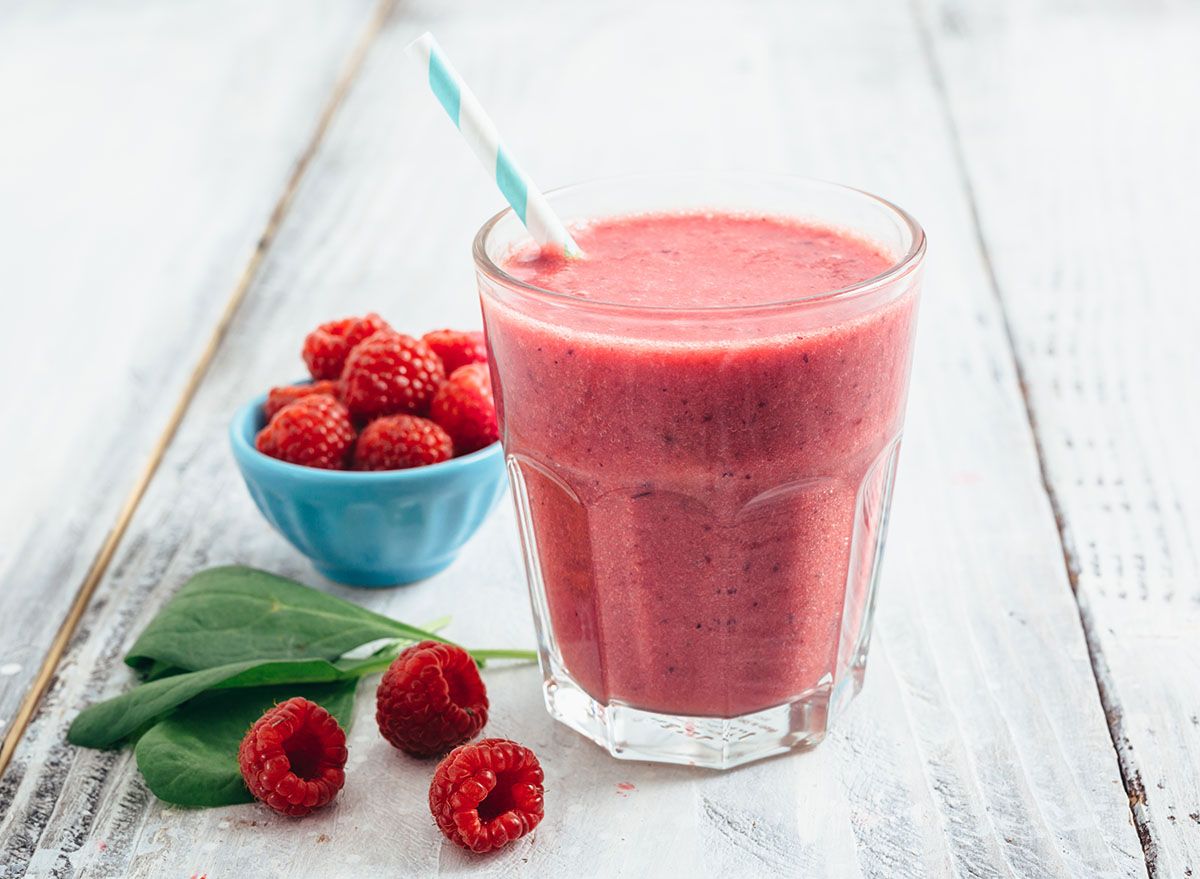
Next, Kort says that pre-made smoothies can also hide huge amounts of sugar. She recommends making your own smoothies at home so that you can control the ingredients or, when in a shop, asking if the smoothie can be made with less juice, sorbet, or sweeteners.
Zenker points out just how high the sugar content can be in this otherwise healthy snack: “A medium strawberry smoothie at a popular fast food chain contains 49 grams of added sugar. There are some restaurant smoothies that contain over 100 grams of sugar. Restaurants will often add ice cream, frozen yogurt, or flavored yogurt to smoothies, which are all usually high in added sugar.”
She adds that having a high sugar content doesn’t negate a smoothie’s other valuable nutritional content, such as fruit, fiber, and vitamins and minerals. “However, it is important to consider total added sugar content consumed in the day,” she says.
RELATED: Certain Foods Trigger Natural Ozempic-Like Weight Loss Effect, Doctor Says.
5
Certain fruits
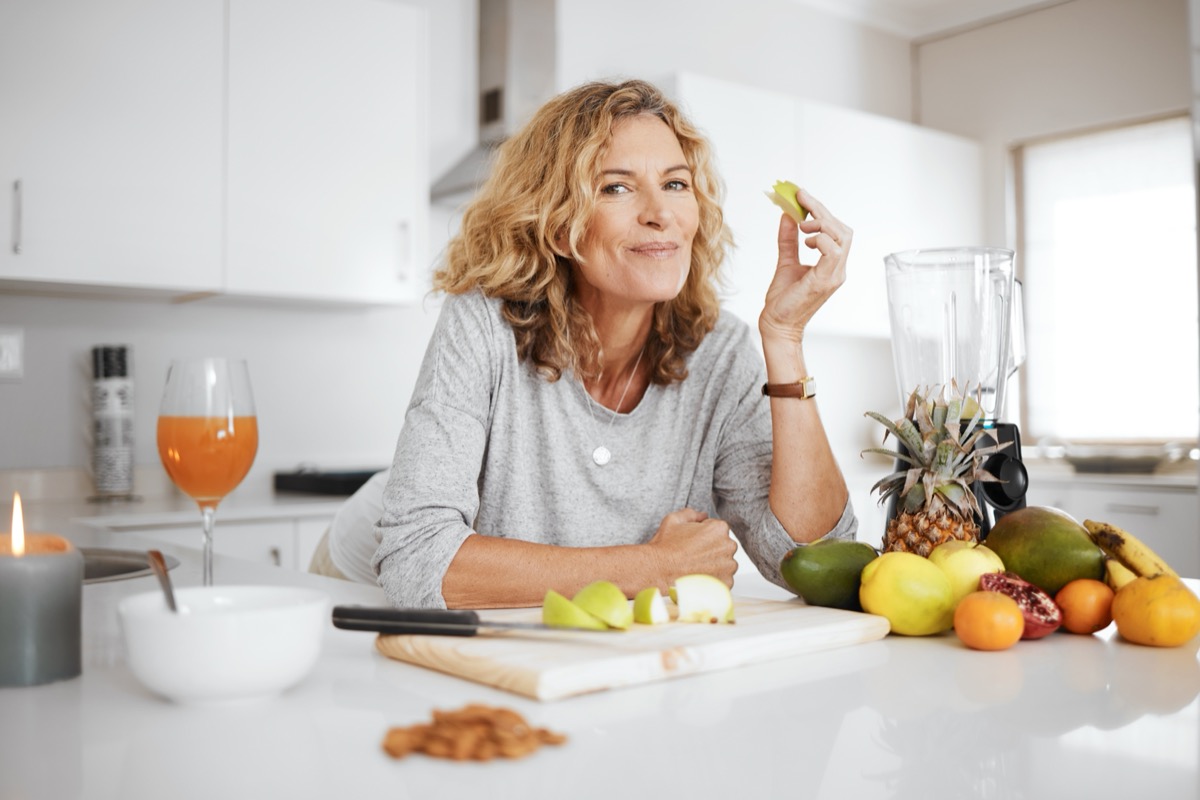
Fruit is undeniably better for you than processed foods with added sugars—and you shouldn’t stop eating it in hopes of losing weight. However, certain fruits can have a naturally high sugar content, so it’s a good idea to think about the type and portion size.
For instance, a large apple can contain 25 grams of sugar, and a mango contains 46 grams of sugar. “Bananas are 25 percent sugar, which spikes your insulin, an inflammatory and fat-storing hormone. People often eat bananas for their first meal of the day, which leads to insulin spikes early in the morning,” says Gioffre.
Gomer adds that dried fruit can also have added sugar on top of its natural sugar content. “Fruit seems like a healthy, no-added-sugar choice, but when it is dried, the water is removed, the sugars are concentrated, and it’s extremely easy to overeat,” she says.
6
Yogurt
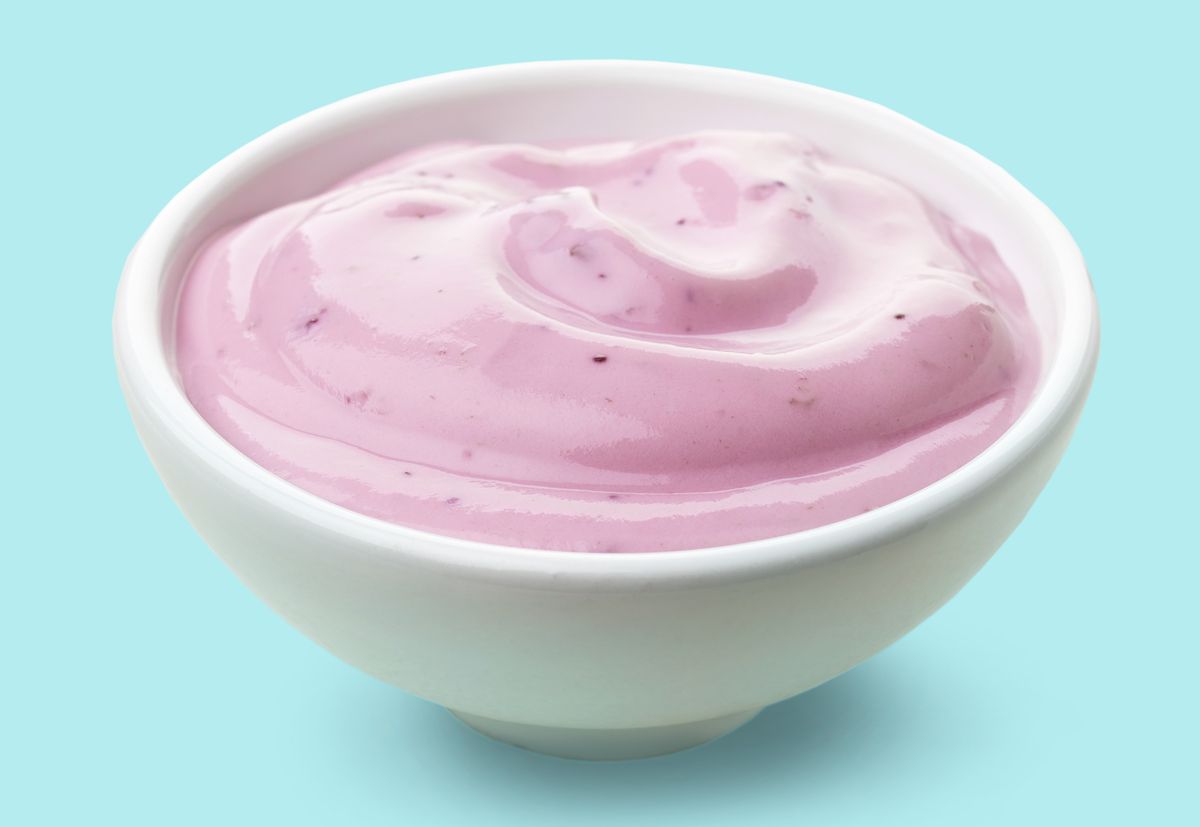
Flavored yogurt is another food that commonly contains hidden sugars. “You’re getting the great benefits of yogurt, but also extra calories when the yogurt is flavored with jams, syrups, sugars or toppings,” says Kort.
“It’s common for yogurt, such as strawberry flavored, to contain 18 grams of sugar per ¾ cup serving,” Zenker adds.
RELATED: The 3 “Ultraprocessed” Foods You Must Avoid for a Longer Life, 30-Year Study Finds.
7
Granola and granola bars
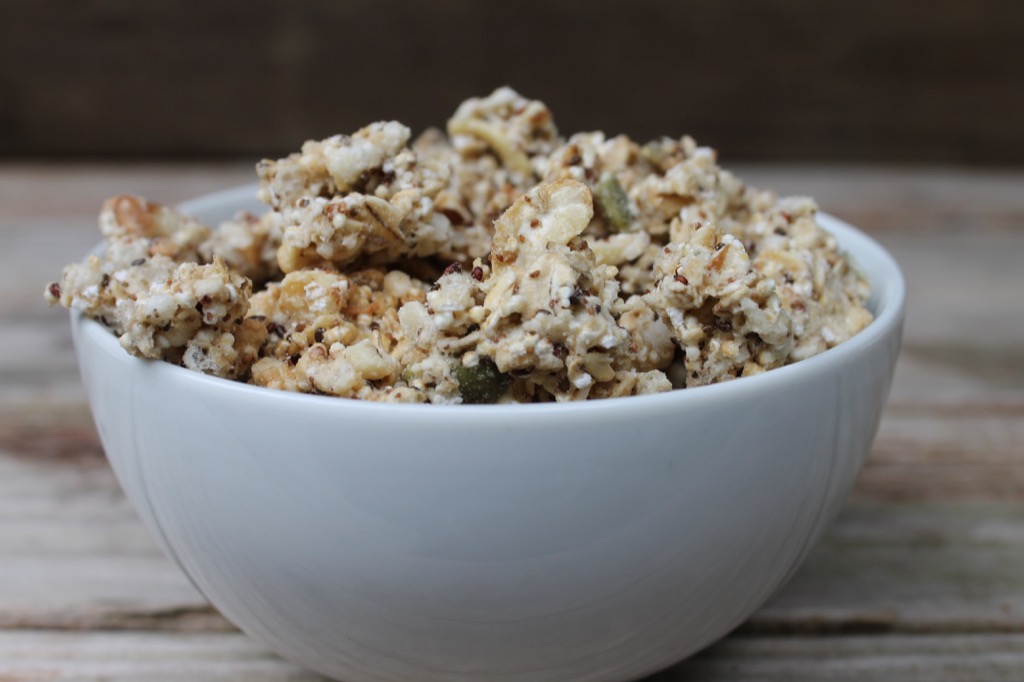
Granola has a reputation for being a healthy food, but the experts agree that it’s typically full of hidden sugars that could make you gain weight.
“Since we often pair granola with yogurt, it is easy to forget that granola is usually made with sugars like honey, agave, molasses, or other sugars. It’s OK to have it, just think about it like a dessert and flavor enhancer, rather than a significant part of your meal,” advises Kort.
Granola bars are equal offenders. “For some people, they don’t make them feel very full or satisfied, so they can end up adding in extra calories,” Kort tells Best Life.
8
Protein bars and breakfast bars
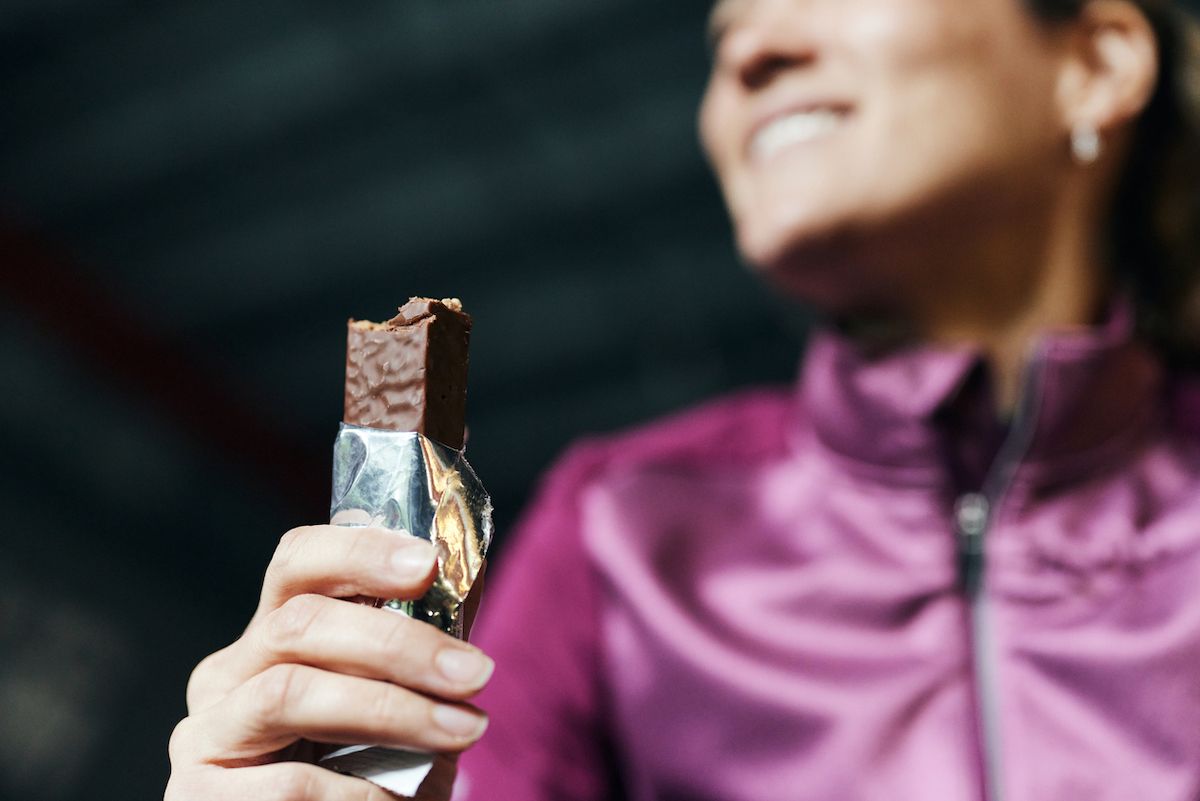
Take a look at the nutritional labels on protein and breakfast bars, and you may be surprised at what you see. Many popular brands, including Cliff Builder’s 20g Protein Bar and LARABAR Banana Bread Bar, have upwards of 20 grams of sugar.
“Most ‘healthy energy and protein bars’ have more sugar than candy bars and are filled with inflammatory ingredients! However, we have all been taught these processed bars that can last forever in our cabinets are ‘good for us,'” Gioffre says.
Gomer agrees that these prepackaged bars enjoy a far healthier reputation than they deserve. “I don’t consider any bars—protein or otherwise—to be healthy food choices… The fact is they have as much or more sugar than candy bars,” she says.
RELATED: 10 Healthiest Superfoods to Add to Your Diet, Nutritionists Say.
9
Cereal

By now, most people are aware that many cereal brands marketed to kids—think Frosted Flakes or Froot Loops—contain astoundingly high amounts of sugar. However, many cereals billed as nutritionally sound can also contain lots of sugar.
“Some cereals are unsurprisingly high in added sugar, like the flashy colorful ones, but there are some unsuspecting ‘healthy-looking’ cereals that also are high in sugar. Some cereals have over 19 grams of sugar per serving, and many people consume more than one serving’s worth in a sitting,” says Zenker.
10
Instant or pre-flavored oatmeal
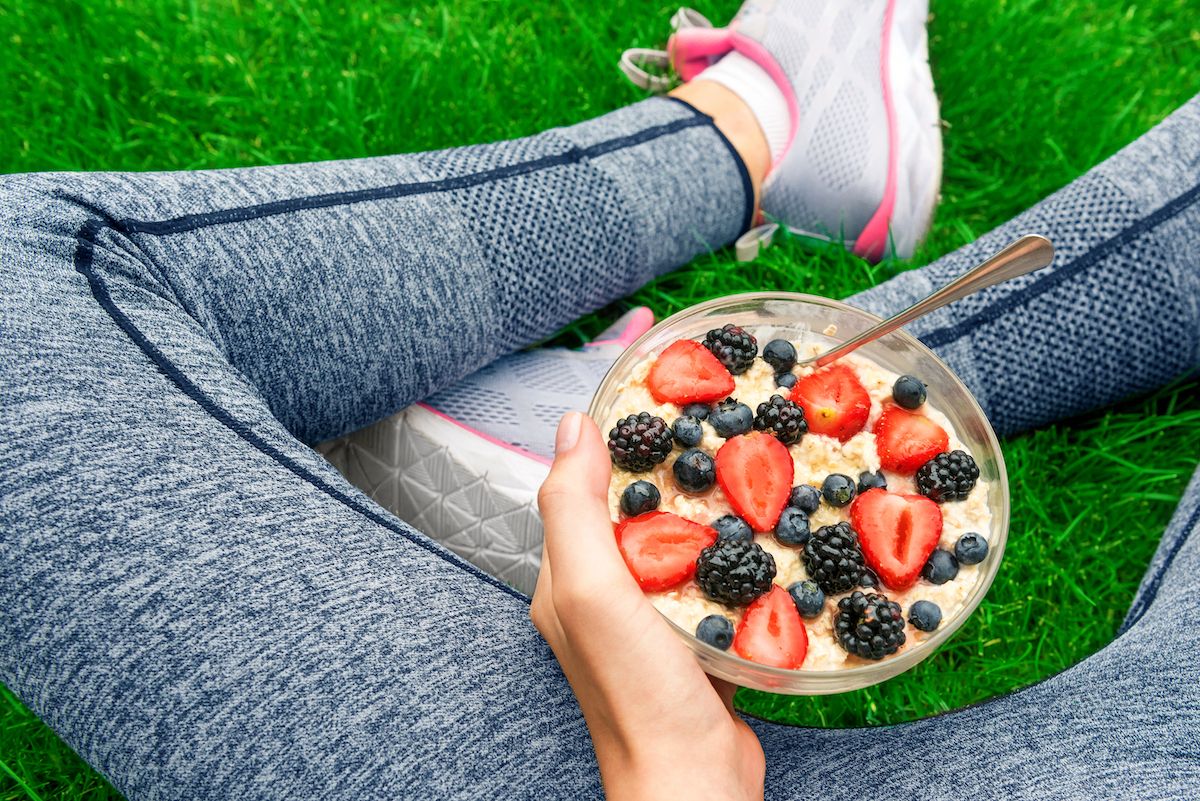
Oatmeal is a nutritional powerhouse packed with fiber, protein, vitamins, minerals, and amino acids. However, instant and pre-flavored oatmeal can also be packed with hidden sugar.
“Oats have great health benefits, but check the nutrition label for ‘added sugars’ if you’re buying a product that is pre-flavored, such as brown sugar or apple cinnamon. If you can, prepare the oats on your own and add your own flavor so you’re more in control of the sugar content,” Kort recommends.
Zenker agrees that pre-flavored oatmeals are best avoided. “A popular brand of instant oatmeal contains up to 13 grams of sugar per packet,” she says.
Best Life offers the most up-to-date information from top experts, new research, and health agencies, but our content is not meant to be a substitute for professional guidance. If you have health questions or concerns, always consult your healthcare provider directly.
- Source: CDC: Added Sugars
- Source: AHA: Added Sugars